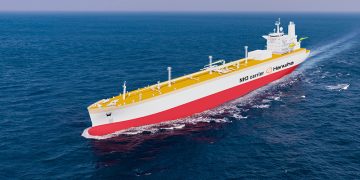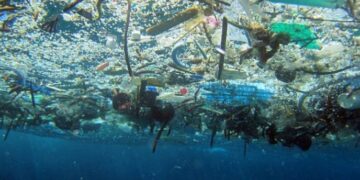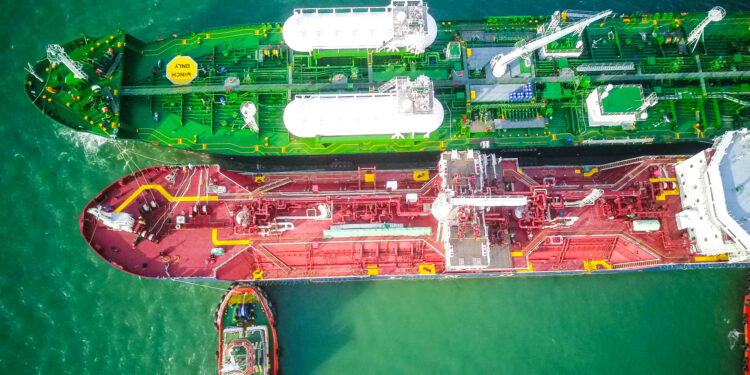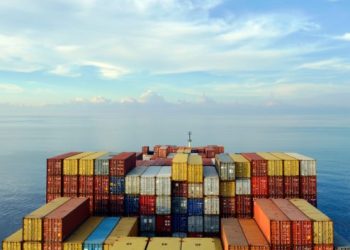Bunkering is an essential part of vessel operations, but frequent disputes take place because of fuel quality problems causing machinery damage or loss of propulsion and can culminate in substantial claims.
In order to provide an overview of a proper bunkering operation, Vijay Rao, Loss Prevention Associate, Steamship, and Patrick Britton, Syndicate Associate, explain what the right procedures are and make general recommendations.
Bunker planning
An important stage of the bunkering process is for the receiving vessel to prepare a detailed bunkering plan for the required grades of fuel and quantities. Area of operation, availability of the appropriate grade of fuel and cost of fuel are important elements of the planning process and therefore needs to be considered by the charterer and vessel operator in liaison with the receiving vessel.
The following information is necessary in order to prepare the bunkering plan:
- Accurate route and passage planning including entry and passage through Emission Control Areas (ECAs).
- Vessel service speed requirements as per charter party.
- Current reserve on board of each grade of fuel oil (include any lubrication oil constraints).
- Bunkering locations and availability there of the specific grades of fuel that can be arranged without undue deviation.
- Tank capacities (not more than 95%) and segregation requirements.
Contractual best practice
When the bunker plan has been created, the following should be agreed by way of the supply contract and where applicable in the charter party.
The latter will address the ownership of the fuel on board. It is important that these requirements are agreed, well documented and communicated to all concerned parties within the terms of contract.
- Grade of each fuel oil.
- Specification of fuel oil, as a minimum specify the ISO8217 standard.
- Sulphur content for compliance or suitable for the installed scrubber.
- Quantity of each grade of fuel oil.
Supplier relations
According to Steamship, the buyer will specify the fuel oil required and the supplier is responsible for providing fuel oil that meets the agreed specification.
The supplier is required to ensure the quality of fuel oil by implementing appropriate control measures within the production and supply chain.
Before making a purchase contract, where possible, the buyer should verify that the supplier:
- Is licenced by the local authority (potential fines in some countries for use of an unlicensed supplier).
- Has a quality management system.
- Will issue a Certificate of Quality based on fuel analysis in accordance with the ISO8217 standard specification.
- Has a track record of supplying the required grade of fuel.
Bunkering operation
The supplier or representative should provide the following documents for the bunkering operations to the recipient vessel and well enough in advance to allow for any discrepancy to be raised and discussed, thereby avoiding any last-minute disputes and delays.
- Certificate of quality issued in accordance with ISO8217 standard
- Safety Data Sheet (SDS) required as per SOLAS Chapter VI Regulation 5.1
- Bunker Delivery Note (BDN)
Sampling
According to the guidance in MEPC 182(59), the samples should be drawn at the receiving ship’s inlet bunker manifold and should be drawn continuously throughout the bunker delivery period.
In case of more than one supplier or, for example, where multiple vessels are used for supply of the required quantity of bunkers, a separate set of samples should be available / drawn along with the applicable BDN.
General sampling procedures include the following:
- A type-approved automatic or manual continuous drip sampler.
- A clean collection container of about 5 litre capacity capable of being sealed at the needle valve in order to prevent contamination.
- Continuous uniform flow to be maintained in order to fill the container with a sample representative of the entire bunkering process, avoid changing the flow rate. Where required the container should be changed, ensuring that containers are sealed in agreement with all parties. Experience suggests that the sampling rate needs to be closely monitored by the crew member manning the manifold to prevent overfilling of the container but also to ensure an adequate quantity of sample is collected.
- Upon completion of bunkering, the seal between the container and needle valve is broken.
- The sample is thoroughly shaken for homogeneity and immediately transferred into clean 750 ml sample bottles simultaneously filling the samples in portions (i.e. not sequential) until the bottles are filled with at least 400ml in each and be careful to prevent any contamination of the samples.
Recommendations
- In order to be able to draw out fair terms of contract close cooperation between parties involved in the
bunkering process is strongly encouraged. Although experience suggests that this can be difficult to implement. The possibility for longer term contracts with suppliers should be explored where the vessel operations allow. - It is imperative that the contractual terms are carefully considered both the supply contract and any relevant charterparty.
- Diligent pre-planning, following well established procedures, maintaining full documentary records, duly signed/witnessed and taking careful and representative sampling is paramount in avoiding a dispute and to support resolution where dispute arises.
- Crew understanding and training is imperative in order to ensure that the bunkering procedures are being strictly adhered to and that records are being meticulously maintained.
- Although limited in their range of analysis, onboard testing kits could prove useful in verifying the basic properties of the fuel oil such as density, water content and viscosity and raising any concerns for an early intervention in anticipation of a potential dispute. The on-board testing should, however, not be considered a substitute for laboratory analysis carried out as per ISO specification.
- The factors that need to be taken into consideration are the quality assurance in the supply chain, contractual compliance, segregated stemming and storage, fuel analysis and fuel management.































































